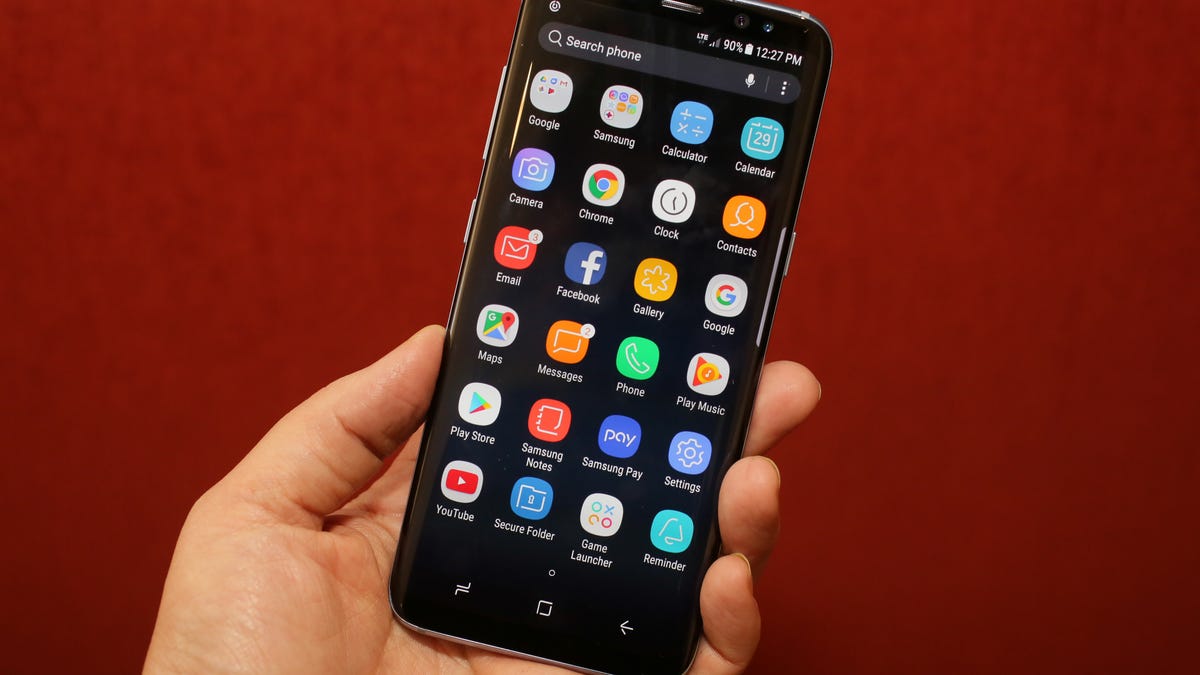Samsung Galaxy S8 begins era of better Bluetooth
Bluetooth 5 short-range networks send data twice as fast or four times as far. Samsung's new flagship phone is the first to support it.
You're more likely to buy Samsung's new Galaxy S8 phone for its screen, processor or camera, but owners will get another significant technology improvement, too: the new Bluetooth 5 generation of the wireless network technology.
"This is the first publicly available Bluetooth 5 phone on the market," said Steve Hegenderfer, director of developer programs at the Bluetooth industry group. "Many more are coming down the pipe."
Bluetooth 5 maintains the same power-sipping approach as its predecessor but offers two new modes: one that doubles data-transfer speeds to 2 megabits per second and one that quadruples transmission range. The current Bluetooth 4.2 can reach about 100 to 300 feet, but obstacles can drastically cut that distance.
That should mean Bluetooth will work better where you can use it today -- wirelessly connecting phones to accessories like speakers, smartwatches, keyboards, fitness trackers and earbuds. And it should help bring it to new areas tomorrow like smart-home technology for networked doorbells, lightbulbs, thermostats and security systems.
Bluetooth 5's improved range should help make things like Bluetooth-enabled basketballs and smart door locks work better when you're not right next to them. And the faster data rates could help when transferring photos from your camera to your phone or retrieving data from a medical device. But these advantages will have to wait for the rest of the Bluetooth market to catch up to the Galaxy S8, announced Wednesday and arriving April 21.
The technology is a big deal in consumer technology, and its low-power advantages should make it a bigger one, according to ABI Research. Bluetooth 5 should help propel the technology to new heights, lifting device shipments by 500 million each year until 5 billion Bluetooth devices are sold in 2021, the research firm forecasts.
Better audio, buzzing beacons
Bluetooth 5 also paves the way for better audio, something that today requires use of older Bluetooth technology that consumes more battery power. A coming audio improvement should cut power while improving audio quality through the use of new data compression technology, Hegenderfer said.
A Bluetooth beacon can broadcast data like an advertiser's website or humidity conditions in that damp corner of your house.
But the Galaxy S8 and its larger sibling, the Galaxy S8 Plus, won't benefit from that now. The new audio technology is still in development, and older audio devices like headphones and speakers won't support it.
The good news is that the new audio features don't require new hardware, so software updates to Bluetooth phones like the Galaxy S8 should add the new support.
Something available now with Bluetooth 5 is an improvement to beacon technology that lets devices periodically broadcast data. Bluetooth beacons can help your phone figure out where you are in the mall or let an advertisement at the bus stop send you a website.
Current Bluetooth beacons can broadcast messages with only 31 bytes of data, but Bluetooth 5 bumps that up to 255 bytes. That could improve consumer uses of Bluetooth like temperature and humidity sensors in your house, Hegenderfer said.
Coming soon: Bluetooth mesh
The radio hardware coming with Bluetooth 5 also enables another big change for the technology called mesh networking. Today, Bluetooth devices connect to each other directly. But mesh networking will let Bluetooth devices shuttle data along a group of interconnected devices.
"Think of a smart home where every Bluetooth device can talk to every other," Hegenderfer said. "There's no central hub, no gateway, nothing to kill my network. If a Bluetooth light goes out, it doesn't matter," because the mesh network will route data around it. Mesh networking for Bluetooth is "months away," he said.
Well, maybe. You'll have to have several Bluetooth devices, for one thing. And with other home-network technologies available, like Zigbee and the already ubiquitous Wi-Fi, you're likely to face a mess of incompatible networks in your house.
But Bluetooth's low energy consumption ensures it a place in your home, backers believe. A small coin-cell battery could be enough to power a thermometer or security system window sensor for years.
"Over the next four or five years, you're going to see Bluetooth all over the place," Hegenderfer said.
Tech Enabled: CNET chronicles tech's role in providing new kinds of accessibility.
CNET Magazine: Check out a sampling of the stories you'll find in CNET's newsstand edition.


